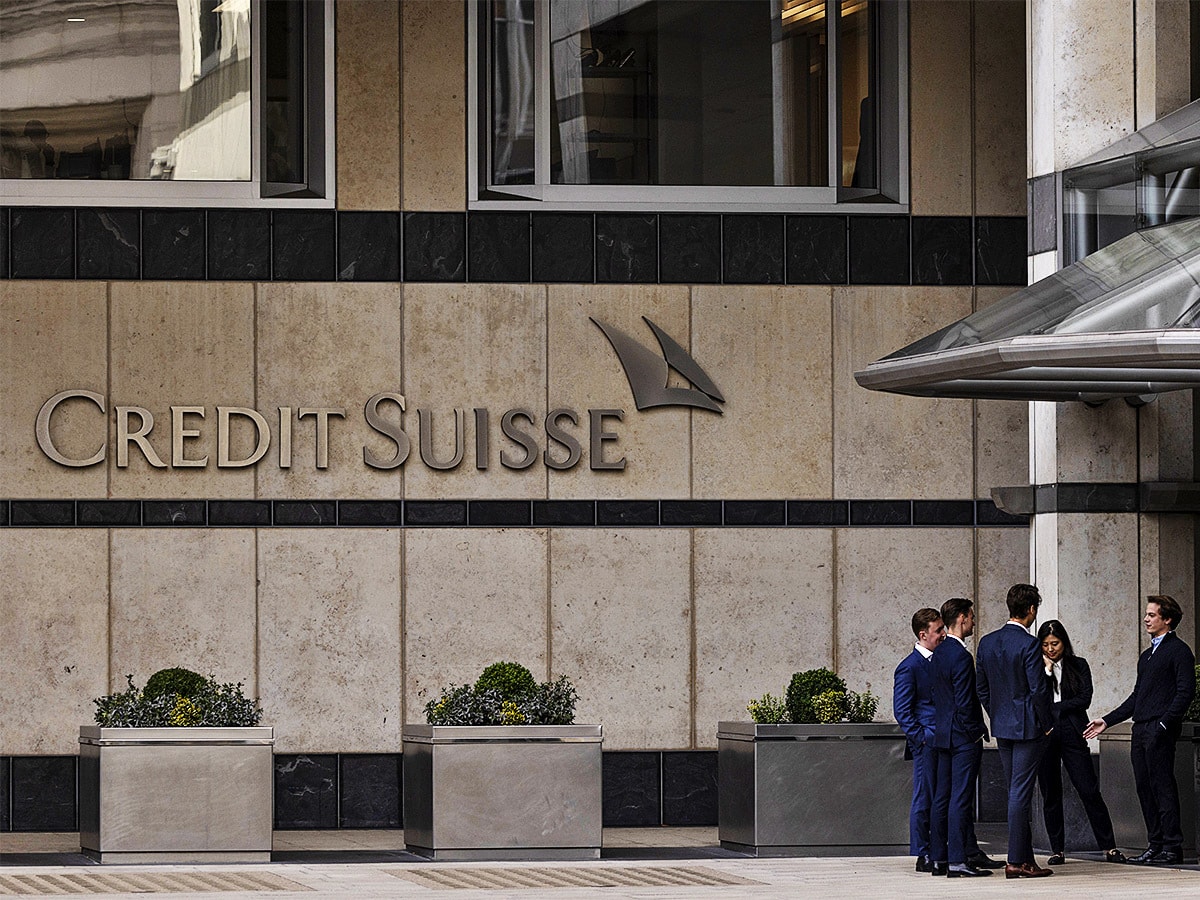Rumours of an impending Lehman-style crash for Credit Suisse may be exaggerated, but there’s no doubt the Swiss lender is in trouble after putting assets, including a five-star Zurich hotel, up for sale. All eyes will be on its 27 October update.
Credit Suisse [CSS], among the best-known names in banking, has triggered market turmoil since news broke of its credit default swaps (CDS) hitting all-time highs, stock sell-offs and a hole in its balance sheet.
Credit Suisse stock has reached record lows in 2022, and as of 11 October’s market close, it is down 56% year-to-date. On social media, there has been speculation the Swiss banking giant’s days are numbered, stoking flashbacks to Lehman Brother’s spectacular demise in 2008. Clients of the bank are buying CDSs as insurance against the bank’s potential failure to pay its debts.
After news spread of its predicament over the weekend on 30 September, Credit Suisse reassured investors it was “actively engaging” with key clients, and CEO Ulrich Körner sent a company-wide memo reassuring staff over the bank’s liquidity.
In another note, on 7 October, he said the executive board was “making good progress in finalising the strategic review” he’s been working on. With its 27 October update coming up, investors will want to know how the bank plans to stabilise its position.
How has Credit Suisse been performing?
In July, the Swiss investment bank reported a loss of $1.92bn in the first six months of 2022, with further losses expected in the second. It forecast a common equity tier 1 (CET1) ratio of between 13% and 14%.
In the last few years, Credit Suisse has suffered major setbacks including billion-dollar losses when hedge fund Archegos Capital Management collapsed in 2021. It also lost $10bn of supply-chain finance funds that were invested in Greensill when the financial services firm went under.
Early in 2022, Credit Suisse said it planned a $440m tactical shift, closing its main brokerage unit and whittling back investment banking services. With the arrival of its new CEO Körner, it announced its second strategic review for the year in July.
Körner is due to update on the bank’s prospects on 27 October alongside the third quarter results.
What are the prospects for a comeback?
Since 30 September, the Credit Suisse share price has clawed its way back up by 13.2% to close at $4.24 on 11 October – a hint that it’s not all over for the bank.
On 6 October, however, Alessandro Roccati, senior VP at the Moody’s Investors Service, told Reuters he anticipated losses for the lender to reach $3bn by the year’s end, giving it a CET1 ratio of slightly below 13%. He wanted that is this ratio remained “consistently” below 13%, this would be “credit negative” for the bank.
The next day, the bank’s new CFO Dixit Joshi began buying back CHF3bn of debt in a bid to rebuild investor confidence. Over the course of those two days, the share price climbed up almost 15% — but it has since dropped down.
On the subject of tactical shifts, any restructure of its investment banking arm must be “decisive”, wrote JPMorgan Chase analyst Kian Abouhossein in a note on 6 October, unlike its previous “piecemeal” attempts. Abouhossein said the focus should be on wealth management, adding that, with $700bn in private banking assets under management expected to generate a 15% return, the bank could generate $15bn.
What is Credit Suisse’s share price outlook?
The recent share price pullback suggests this isn’t a Lehman situation – yet. CEO Körner only joined the bank in April and launched his strategic review in late July.
On 6 October, the bank put its five-star Savoy hotel in Zurich, valued at CHF400m (approximately $402m), up for sale in a bid to retain liquidity. It was a move that indicated not only the gravity of the situation, but how serious the bank’s leadership is about solving it.
The bank’s rating from Moody’s was downgraded in August and has remained negative ever since. According to Reuters, analyst Roccati said: "The current market environment is not supportive of restructuring and is not supportive of Credit Suisse's current capital market business model”. S&P Global and Fitch have since followed Moody’s lead with similarly depressed ratings.
At CNN Money, the consensus of 22 analysts recommend to ‘hold’ Credit Suisse stock. The 18 analysts providing 12-month price targets had a median of $5.25, a potential 23.8% increase from the close of $4.24 on 11 October.
Disclaimer Past performance is not a reliable indicator of future results.
CMC Markets is an execution-only service provider. The material (whether or not it states any opinions) is for general information purposes only, and does not take into account your personal circumstances or objectives. Nothing in this material is (or should be considered to be) financial, investment or other advice on which reliance should be placed. No opinion given in the material constitutes a recommendation by CMC Markets or the author that any particular investment, security, transaction or investment strategy is suitable for any specific person.
The material has not been prepared in accordance with legal requirements designed to promote the independence of investment research. Although we are not specifically prevented from dealing before providing this material, we do not seek to take advantage of the material prior to its dissemination.
CMC Markets does not endorse or offer opinion on the trading strategies used by the author. Their trading strategies do not guarantee any return and CMC Markets shall not be held responsible for any loss that you may incur, either directly or indirectly, arising from any investment based on any information contained herein.
*Tax treatment depends on individual circumstances and can change or may differ in a jurisdiction other than the UK.
Continue reading for FREE
- Includes free newsletter updates, unsubscribe anytime. Privacy policy





